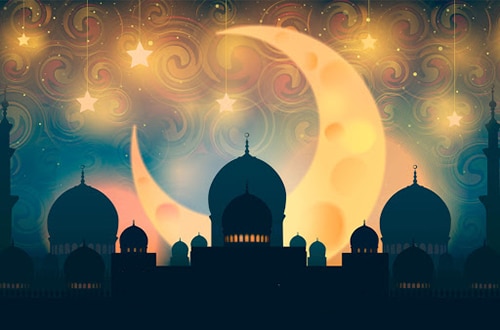Ramadan. We want to know more!

Our team member Ziaad runs us through some common questions about the holy month and gives us a snapshot of a day in the life of Ramadan – from waking up for morning prayers to working & punching out tax returns while fasting.
Here’s our questions answered, thank you Ziaad for taking the time to share great insight into your culture and most sacred month.
So, what is Ramadan actually about?
“It’s one of 5 pillars of Islam. This means it’s something obligatory for every Muslim to take part in, that is if they’re physically able and of age. There are exceptions for the sick, pregnant etc. It is for 29-30 days and we fast from dawn to sunset. The purpose is to be more conscious of God and grow closer to him in this month, where throughout the year it is easy to get distracted. It is a great time to reset and remember our actual purpose of existence.
How does Ramadan work, what do you do for the month?
We abstain from food and drink from dawn to sunset. However, it is more than that, we try to abstain from all sins such as lying, swearing etc. It is a time to be conscious of God and to minimise our sins. Muslims are told to fast as all the prophets of the past were also ordered to fast, such as; Abraham, Moses, Jesus etc. We leave what is usually halal (lawful) such as food and drink in these 30 days as a form of worship, as mentioned it is the third of five pillars of Islam.
The five pillars of Islam are:
1. To declare God is the only one to worship and Muhammad (peace be upon him) is the last and final messenger
2. Pray our 5 daily prayers
3. Fast the month of Ramadan
4. Give charity
5. Perform the Hajj in Makkah if your means allows for it
Can you give us a snapshot of a typical day of fasting?
Typically, a Muslim will wake up before dawn, eat a little bit and drink water and then stop eating prior to dawn. Then offer the morning prayer (before sunrise), this is called Fajr. Then you will stay up and read some Quran or supplicate (make dua) where you ask God for what you want etc. There is the midday prayer which is called Dhuhr prayer. The Asr prayer which is in the afternoon. At sunset the Muslims can then break their fast, this is generally done by eating a date and drinking some water. Then we offer the prayer after sunset, this is called Magrib. We then eat dinner and rest, followed by the final of the 5 prayers for the day which is at night and is called Isha.
The difference in Ramadan is most Muslims pray additional voluntary prayers after Isha, this is called Tarawih. The challenge with the lockdown is we can’t pray in congregation, generally Muslims try to pray in congregation as there is more rewards. The reason there is so much extra prayers a Muslim does in Ramadan is because this is one of our holy months where our deeds are multiplied.
Along with this there is other acts of worship that are commonly increased in Ramadan such as; charity, kindness, feeding of the poor etc. You will see mosques all over the world hosting public iftar’s daily (the breaking of the fast meal).
Why is Ramadan in May this year? How are the dates of Ramadan selected?
Ramadan is the 9th month in the Islamic calendar. We have 12 months and we run on a lunar calendar. Ramadan marks the 9th month and it begins when the moon of Ramadan is spotted. It being a lunar calendar our months move back about 10 days every year as we only have 29-30 days in a month, depending on the moon phase. Whereas the Gregorian calendar is set 365 days and does not change. I can remember when I was a child Ramadan was in November/December.
Is there anything else you’d like to share with us?
I have linked an article the Guardian published this Ramadan. It gives some further insight into Ramadan. Mufti Zeeyad Ravat who is being interviewed is a client of Highview, and we setup his Not-For-Profit: Daarul Arqam Australia.
Thanks again Ziaad for helping us better understand the holy month of Ramadan.